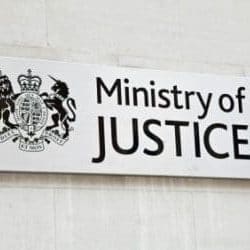
MoJ: Looking for rule committee agreement by the end of 2022
The Ministry of Justice (MoJ) has put back by six months to April 2023 the extension of fixed recoverable costs (FRCs) across the fast-track and in most money cases worth up to £100,000.
It emerged late last year that officials were working towards an October 2022 start-date but yesterday the MoJ said it was aiming to secure Civil Procedure Rule Committee agreement on the new rules by the end of 2022 for implementation in April 2023.
The news came as the MoJ issued consultations on two specific issues that have arisen in the work on FRCs: ensuring appropriate provisions for vulnerable parties and witnesses, and a reconsideration of the rules on qualified one-way costs shifting (QOCS) following the Supreme Court’s 2021 judgement in Ho v Adelekun.
The MoJ said it was “keen to ensure that those who are vulnerable (either as parties or witnesses) are not disadvantaged in bringing or defending claims which are within the scope of FRC”.
It has proposed leaving it to the judge to determine whether or not the vulnerability gave rise to sufficient extra work to justify, exceptionally, an additional amount of costs – this would be retrospective, rather than prospective, and on the basis that the vulnerability caused at least 20% of additional costs. There would be no upper limit.
This issue arising from Ho was whether costs set-off should be possible in a QOCS case, with the Supreme Court finding that the CPR restricted a defendant’s ability to offset costs awarded to the defendant against only the damages awarded to the claimant.
This had a knock-on effect to the earlier Court of Appeal decision in Cartwright, which said accepting a part 36 offer did not create an enforceable order for the purposes of QOCS. The MoJ said that decision was “manageable in practice” because – until Ho came along – parties could then agree an offset against costs.
“Thus, the combined outcome of both of these cases is to undermine the effectiveness of QOCS and part 36 in resolving disputes,” the consultation paper said.
To deal with this, the MoJ has proposed amending section II of CPR 44 so that a claimant’s entitlement to costs was considered to be part of the overall fund against which set-off could be applied; and extend costs orders to deemed orders, so a defendant could enforce a deemed order for costs (especially following acceptance of a part 36 offer) without the permission of the court.












Leave a Comment